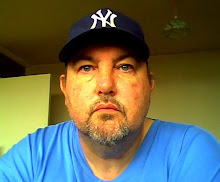
It is the mid 1970’s and the cold war is at its height. British Intelligence - The Circus, is struggling to shake off an atmosphere of failure and frustration. The head of The Circus (know only as Control), desperate to discover what is going wrong, has concluded that Russia has placed a double agent (mole) at The Circus’ highest level. He has narrowed the field to five suspects:
“There are four of them and Alleline”.
Struggling with failing health, Control mounts one final mission to discover the mole’s identity. The mission fails, and his agent, Jim Prideaux, is shot and captured causing a political scandal.
Control is removed from office and George Smiley (as Control’s right-hand-man) is sacked.
Eighteen months on: Control is dead; Alleline, on the back of his new source of intelligence – Merlin, is head of The Circus; and Smiley is coming to terms with his enforced retirement.
Then, a British agent – Rikki Tarr, posted as a defector, returns to England with a tale of a Russian mole within The Circus and Smiley is called in to uncover his identity.
Smiley, with the aid of former trusted colleagues, sets about his task of researching reports and tracking down those involved, until he finally pieces together the whole picture.
This is the latest of BBC Radio’s adaptations of John Le Carre’s George Smiley stories and, as with the previous productions; it was first broadcast on BBC Radio 4 before being released as a CD set.
Once again, Smiley is played by Simon Russell Beale who portrays a world-weary man, almost reluctant to return to a life he thought he had left behind. The sense of frustration, anger and finally betrayal he projects with his voice displays an actor on top of his game, and in this, he is ably backed up by the rest of the cast, many of whom are reprising roles from earlier stories, notably Kenneth Cranham as Mendel, Ewan Bailey as Peter Guillam and Anna Chancellor as Lady Anne Smiley.
I particularly like the idea of using Peter Guillam as the story’s narrator and having Anne (a minor character in previous adaptations) as an almost constant voice in the back of Smiley's mind.
As with the previous adaptations in the series, this is a very faithful production which generates the kind of atmosphere only radio can achieve. By the nature of the text, it requires a certain amount of concentration, and quite a commitment, to listen the whole production in one sitting (the running time being just under 3 hours). However, the production has been split into three logical parts (each just under an hour in length) which makes for ease of listening.
It is difficult not to compare this to the famous Alec Guinness TV version of the late 1970’s as, to many people, Guinness became the definitive Smiley (so much so that Le Carre stopped writing the stories as he felt he was writing Guinness and not Smiley) but I feel that it stands up to comparison. I also feel that it compares well with the previous radio version from the 1980’s featuring Bernard Hepton as Smiley.
I have enjoyed all of the previous production in the series (especially “The Spy Who Came In From The Cold” with Brian Cox) and I am looking forward to the broadcast/release of the remaining stories.
4 out of 5.
©K. C. Beatson – 19/01/2010

No comments:
Post a Comment